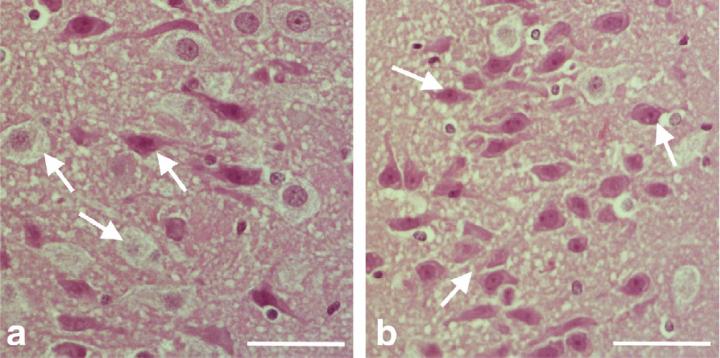
Credit: FEFU press office
Scientists from the School of Biomedicine of Far Eastern Federal University (FEFU) with colleagues from Italy, Spain, Romania, and Sweden suggest a way to protect the brain and minimize neurodegenerative processes after concussion head injuries in the presence of extensive previous sleep deprivation. This methodology is especially important given the retirement-age increase that has recently become an international trend. A related article appears in the Progress in Brain Research journal.
The team have modeled brain dysfunctions after a minor head injury in the presence of extensive previous sleep deprivation, identified the hormones and proteins that affect the development of neurogenerative processes, and suggested compensating for them with target drug delivery using TiO2 nanocrystals. The new therapeutic method will protect the neurons and minimize the loss of cognitive functions and degradation of brain tissue.
“Brain dysfunctions of this type are typical for military personnel engaged in special operations and suffering from long sleep deprivation. In situations like this, even a relatively minor head injury can cause the development of complex pathophysiological mechanisms that can negatively affect health. However, such dysfunctions are even more widely spread among middle-aged people with CNS vascular diseases and initial stages of cerebrovascular disturbance–the conditions that could lead to a stroke, if left untreated. In these patients, a concussion or a hypertensive crisis caused by high blood pressure might bring about neurogenerative processes leading to progressive loss of cognitive functions,” explains Igor Bryukhovetskiy, the Head of the Laboratory of Molecular and Cellular Neurobiology, Department of Fundamental Medicine of the School of Biomedicine at FEFU.
According to the scientist, about 20% of adults all over the world suffer from sleep disturbances that can cause reduced activity and sleepiness during the day and negatively affect one’s decision-making abilities. Among these people, there is military personnel, as well as night-shift workers, including health care specialists. Sleep deprivation increase the risk of neurogenerative processes even in case of a minor head injury.
Studies confirm that both head injuries and long sleep deprivation, as well as a combination of these two factors, lead to reduced production of alpha-melanocyte-stimulating hormone and the so-called brain-derived neurotrophic factor, a protein coded by the BDNF gene. The gene also stimulates and supports neuron development. However, that is possible to compensate the lack of these substances.
The team suggest delivering titanium dioxide capsules with cerebrolysin (a combination of several proteins and peptide fragments) and alpha-melanocyte-stimulating hormone directly to a patient’s brain. This procedure comes along with the transplantation of mesenchymal stem cells from the patient’s bone marrow to their brain. The new method could help protect brain neurons and limit neurological damage and cognitive dysfunction (i.e. the loss of existing knowledge and skills and inability to acquire new ones).
According to the researchers, titanium dioxide secures the best therapeutic effect of the delivered drugs and reduces the production of the very important extracellular protein called cachectin or tumor necrosis factor-alpha. Its misregulation is associated with various neurodegenerative and autoimmune conditions, such as Alzheimer’s disease and psoriasis, respectively.
The team believes in the importance of their work given the retirement-age increase all over the world. The aging of the population in some countries in Europe, Asia, and North America combined with early onsets of hypertension and glucose tolerance malfunction in relatively young people add to this process. To respond to this trend and support people’s labor efficiency and cognitive functions, medicine has to develop preventive measures, such as new neuroprotective and organ-saving technologies.
###
Media Contact
Alexander Zverev
[email protected]
Related Journal Article
http://dx.
https://scienmag.com/way-to-support-effective-brain-performance-after-head-injury-backgrounded-by-lack-of-sleep/




